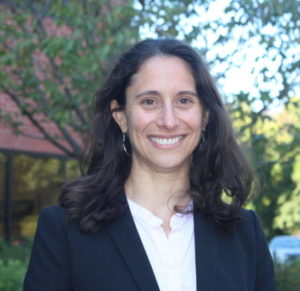Oct 21
Increasing Strength for Older Adults

Dalia Cohen, Director of Nutrition at Springwell, periodically leads educational discussions for older adults on topics relating to diet and activity. “Increasing Your Strength” is the current topic and includes information about strength and muscle mass, the importance of adequate protein intake and the positive effects of exercise. Cohen hosted the discussion at the Brookline Council on Aging in early October and will be discussing it at the Belmont Council on Aging on Tuesday, October 26 at noon.
Many older adults may not think about the importance of strong muscles at this stage of their lives, but muscle mass supports physical strength and power, reduces risk of falls and bone fractures, and supports a healthy metabolism and weight. We can start to have less muscle as young as our 30s from a combination of losing muscle and not making as much new muscle. Stress, medications, smoking, alcohol, and illnesses can cause muscle breakdown and there is also the gradual loss of muscle with aging, known as sarcopenia.
Cohen emphasizes that to make and maintain muscles we need to “eat enough protein and calories each day and engage in physical activity regularly.” Protein has many functions in the body including helping to build muscle. “Too little protein can result in feeling tired, run down, and lead to weight loss and muscle loss.” How much protein is the right amount? The current Daily Recommended Intake (DRI) is about 0.8 g/kg/day for older adults. Needs vary for individuals based on age, gender, weight, activity level, and medical conditions. If you are more active, you need more protein. Cohen notes that “ on average, the nutrition program lunches contain 30 grams of protein, which is about the amount that can be absorbed at one time.”
Studies have shown that about 50 percent of women and 30 percent of men 71 and older fall short of protein recommendations. To get enough protein, Cohen recommends that we spread protein out throughout the day. An even distribution of protein throughout the day has been shown to be associated with higher muscle mass in older adults. She suggests that we add more protein to breakfast and use snacks to get more protein.
We have all heard the expression “use it or lose it.” It is definitely true when it comes to muscle mass! Cohen reminds us that exercise helps to build new muscle and prevent loss. If that’s not enough motivation, she adds that exercise also helps us feel better, improve brain and mental health, and enhance heart health.
Attendees appreciated the discussion and Cohen’s detailed recommendations of high protein food choices and exercise options that are accessible and safe for older adults.

